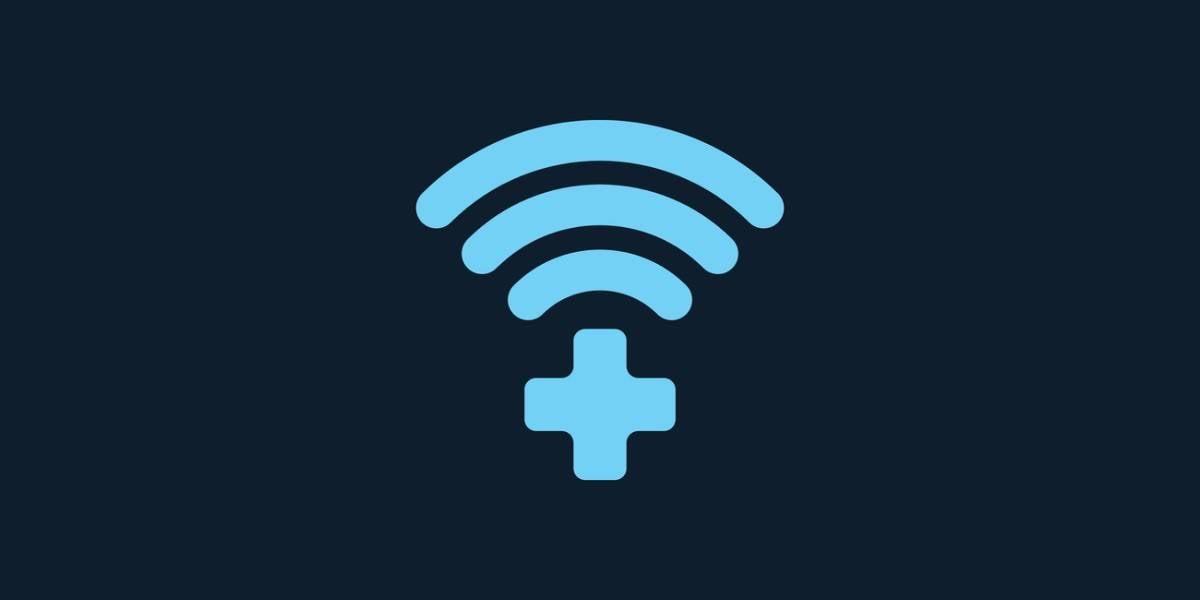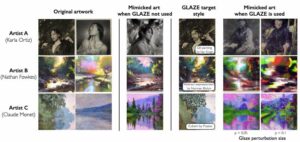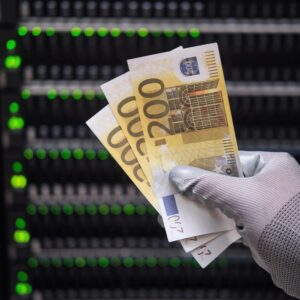
Computex Delta is a Taiwanese company that specializes in power management kit, the sort of thing that datacenters need. It’s therefore very much in demand right now but also, as revealed in the final keynote address of the 2024 edition of the Computex conference, undertakes some tangential R&D
Including work that allows measurement of your heartbeat over Wi-Fi.
Delta sent the general director of its research center, Doctor Tzi-cker Chiueh, to explain the tech, which he said measures time of flight and angle of arrival of radio waves sent by Wi-Fi devices to locate objects. That’s not new – Cisco has built access points to do it.
This application appears to take things further by also measuring how objects change in close to realtime.
“Channel state in modern Wi-Fi is susceptible to minor environmental changes,” Dr. Chiueh told the Computex crowd. Such minor changes that Delta has created an algorithm he said performs breathing rate estimation algorithm at 95 percent accuracy over five meters.
A beating heart is harder to track, as it produces smaller movements than a heaving chest. Delta’s algo nonetheless assessed heartbeat rates at 83 percent accuracy over one meter, the Doctor claimed.
The tech can even detect sleep states by measuring breathing rate and body movement frequency.
Dr. Chiueh showed video of an experiment in which two men lay on a bed with smartphones on adjacent nightstands to illustrate his claims, and suggested similar arrangements plus use of Wi-Fi access points to gather more data could see environments like hospitals or aged care homes monitor patients without dedicated sensors or electroencephalograms.
Another potential application for the tech is detecting children left in cars, a capability vehicles are required to possess under the Euro NCAP CPD standard.
Another use case he outlined is detecting physical changes impacting performance of Wi-Fi networks in environments like warehouses or campuses, then automating changes to access points in ways that improve performance to levels at which they challenge private 5G networks.
His presentation also covered Delta’s efforts to automate creation of 3D models depicting things like bridges, to enable drones to inspect them even when they cannot connect to GPS services. The company has also used AI to simulate more corner cases that could confront a self-driving car, to enable simulated testing of their performance in more extreme scenarios.
A robot capable of using an elevator is another project on the books.
So is AI to help Delta design its core power management products.
But Doctor Chiueh mentioned that effort at the end of his talk, because he concluded with an observation that “In the era of AI innovation, people think Taiwan can only innovate with hardware.”
The point of his speech was to prove that supposition wrong, even if he didn’t offer timelines for commercialization of the projects he mentioned. ®
- SEO Powered Content & PR Distribution. Get Amplified Today.
- PlatoData.Network Vertical Generative Ai. Empower Yourself. Access Here.
- PlatoAiStream. Web3 Intelligence. Knowledge Amplified. Access Here.
- PlatoESG. Carbon, CleanTech, Energy, Environment, Solar, Waste Management. Access Here.
- PlatoHealth. Biotech and Clinical Trials Intelligence. Access Here.
- Source: https://go.theregister.com/feed/www.theregister.com/2024/06/06/wifi_motion_detection_delta_computex/
- :has
- :is
- :not
- 2024
- 3d
- 5G
- a
- access
- accuracy
- address
- adjacent
- aged
- AI
- ALGO
- algorithm
- allows
- also
- an
- and
- angle
- Another
- appears
- Application
- ARE
- arrival
- AS
- assessed
- At
- automate
- automating
- because
- body
- Books
- breathing
- bridges
- built
- but
- by
- CAN
- cannot
- capability
- capable
- car
- care
- cars
- case
- cases
- Center
- challenge
- change
- Changes
- Children
- Cisco
- claimed
- claims
- Close
- CO
- commercialization
- company
- concluded
- Conference
- confront
- Connect
- Core
- Corner
- could
- covered
- created
- creation
- crowd
- data
- dedicated
- Delta
- Demand
- depicting
- Design
- detect
- Devices
- Director
- do
- Doctor
- dr
- Drones
- edition
- effort
- efforts
- enable
- end
- environmental
- environments
- Era
- Euro
- Even
- experiment
- Explain
- extreme
- final
- five
- flight
- For
- Frequency
- further
- gather
- General
- gps
- harder
- Hardware
- he
- Heart
- help
- his
- Homes
- hospitals
- How
- HTTPS
- if
- illustrate
- impacting
- improve
- in
- innovate
- Innovation
- IT
- ITS
- jpg
- Keynote
- Label
- lay
- left
- levels
- like
- management
- measurement
- measures
- measuring
- Men
- mentioned
- minor
- models
- Modern
- Monitor
- more
- movement
- movements
- much
- Need
- networks
- New
- now
- objects
- observation
- of
- offer
- on
- ONE
- only
- or
- outlined
- over
- patients
- People
- percent
- performance
- performs
- physical
- plato
- Plato Data Intelligence
- PlatoData
- plus
- Point
- points
- possess
- potential
- power
- presentation
- private
- produces
- Products
- project
- projects
- Prove
- Radio
- Rate
- Rates
- realtime
- required
- research
- Revealed
- right
- robot
- Said
- scenarios
- see
- self-driving
- sensors
- sent
- Services
- showed
- similar
- simulate
- sleep
- smaller
- smartphones
- some
- specializes
- speech
- standard
- State
- States
- such
- susceptible
- Taiwan
- Take
- Talk
- tech
- Testing
- than
- that
- The
- The Projects
- their
- Them
- then
- therefore
- they
- thing
- things
- think
- time
- timelines
- to
- told
- track
- two
- under
- undertakes
- use
- use case
- used
- using
- Vehicles
- very
- Video
- was
- Watch
- waves
- ways
- when
- which
- Wi-fi
- with
- without
- Work
- Wrong
- Your
- zephyrnet













